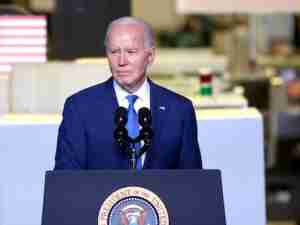Protectionist Clouds Resurface With Failing Canada-EU Trade Pact
By: Josh Wingrove | Oct 23 2016 at 07:51 PM | International Trade
The possible collapse of a free-trade agreement between the European Union and Canada is the latest sign of how rising protectionism is imperiling free trade.
As policy makers and analysts try to make sense of Brexit, the rise of Donald Trump and a growing tide of populism, some say faltering talks between the EU and Canada raises questions about how other deals can possibly be clinched.
The Europeans are holding similar, less-advanced talks with the U.S. about a free trade pact and are beginning negotiations with the UK over Brexit. The U.S. and Canada, meanwhile, are among the 12 nations working toward the Trans Pacific Partnership.
“We’ve been bending over backwards trying to accommodate the new pockets of new nationalism, socialism, anti-globalism,” Jeremy Kinsman, a former Canadian ambassador to the EU, said Friday in an interview with Bloomberg TV Canada.
The breakdown is especially awkward for the EU, with Canadian officials doing little to hide their frustration. Canadian Trade Minister, Chrystia Freeland, walked out of negotiations Friday in Belgium aimed at appeasing the region of Wallonia, the sole holdout opposing a deal.
“It is now evident to me, evident to Canada, that the European Union is incapable of reaching an agreement—even with a country with European values such as Canada,” Freeland said Friday, choking up as she spoke. “I personally am disappointed, but I think it’s impossible.”
Stumbling Blocks
Freeland, who held another meeting Saturday before returning home, maintains Canada is ready to sign. Officials in Europe remain hopeful a last-minute solution can be reached.
The EU-Canada pact between like-minded nations had already been amended once to address concerns from social democrats such as Walloon leader Paul Magnette.
“It’s a huge embarrassment for the European Union,” according to Jacob Kirkegaard, a senior fellow at the Washington-based Peterson Institute for International Economics.
In addition to being a symptom of anti-globalization sentiment, Kirkegaard said the EU-Canada stumble shows trade pacts are growing more complex and facing greater public scrutiny, a recipe for delay in the current EU system. “The broader problem in the EU’s trade agenda lies in the decision-making process,” Kirkegaard said by phone. “The price for final passage of these deals in the EU has gone up. And that should worry people.”
Dispute Settlement
Canada estimated the Comprehensive Economic and Trade Agreement, or CETA, would increase bilateral trade by 20 percent and add C$12 billion ($9 billion) to Canada’s economy, or the equivalent of 80,000 new jobs. The two sides began negotiations in 2009 and an agreement in principle was signed in 2013 by former Prime Minister Stephen Harper.
However, Prime Minister Justin Trudeau’s Liberal government has claimed the pact was effectively dead when it took power last fall, and was revived only by amendments announced this year that quelled concerns about the dispute settlement powers of states over corporations.
Since then, Canada focused its lobbying efforts on European social democrats while also appointing a CETA envoy to secure its passage. But warnings mounted and the EU opted against a fast-track approach. The deal needs unanimous approval among member states, and it’s still lacking Belgium amid Wallonia’s objection.
Test Case
CETA’s delay makes the likelihood of the EU concluding the Transatlantic Trade and Investment Partnership with the U.S. “quite bleak,” Kirkegaard said. EU leaders publicly acknowledged the Canadian deal had become a test case. EU President Donald Tusk said he was concerned “for Europe’s reputation” and that failure would be seen as a sign the EU can’t deliver on any agreement.
A number of European leaders have come up in support of the accord.
Austria’s Chancellor Christian Kern said in an interview with daily newspaper Kronen-Zeitung that failure to come to an agreement is a “low point” and underscores the need for reform in the EU. Estonian Prime Minister Taavi Roivas warned the failure of CETA would make it “very difficult to imagine we can be successful” in reaching a deal with the U.S., while Maltese Prime Minister Joseph Muscat said a post-Brexit deal with the UK would be even more difficult. “If Europe cannot conclude an agreement with one of the most progressive countries in the world right now, which has offered thorough assurances on all the issues that have been raised by certain European skeptics, then honestly I don’t know with whom we could possibly conclude any agreement,” he said.
EU Viability
Trudeau, the popular Canadian leader who has been preaching fiscal stimulus to spur “inclusive” growth since his election last year, has regularly warned the EU needed to prove it was still viable by passing CETA. The deal’s failure would prompt serious questions about “how relevant the European Union continues to be as a political entity,” he said in Toronto this month.
Frustrations in Canada— which has so far largely avoided anti-trade, anti-immigration sentiment on the rise elsewhere—were acute after negotiations collapsed.
CETA is a “serious and mutually beneficial and fundamentally harmless” trade agreement, Kinsman said. “There are few candidates more harmless in this respect than Canada. It just doesn’t make sense.”
The path forward is unclear. Magnette, the Wallonia leader, said he only needed “a bit more time” to consider the pact and said it was still possible to restart talks. EU Trade Commissioner Cecilia Malmstroem said Sunday on Twitter it was up to Belgium to “bring this matter to a successful close.”
Pressed about the deal Friday in Canada’s legislature, Trudeau’s government effectively washed its hands. “The ball is in their court. We have done everything we can do,” said David Lametti, a Liberal lawmaker and Freeland’s deputy. Asked what the implications are for the EU if CETA collapses altogether, he replied: “That’s for Europeans to answer.”

